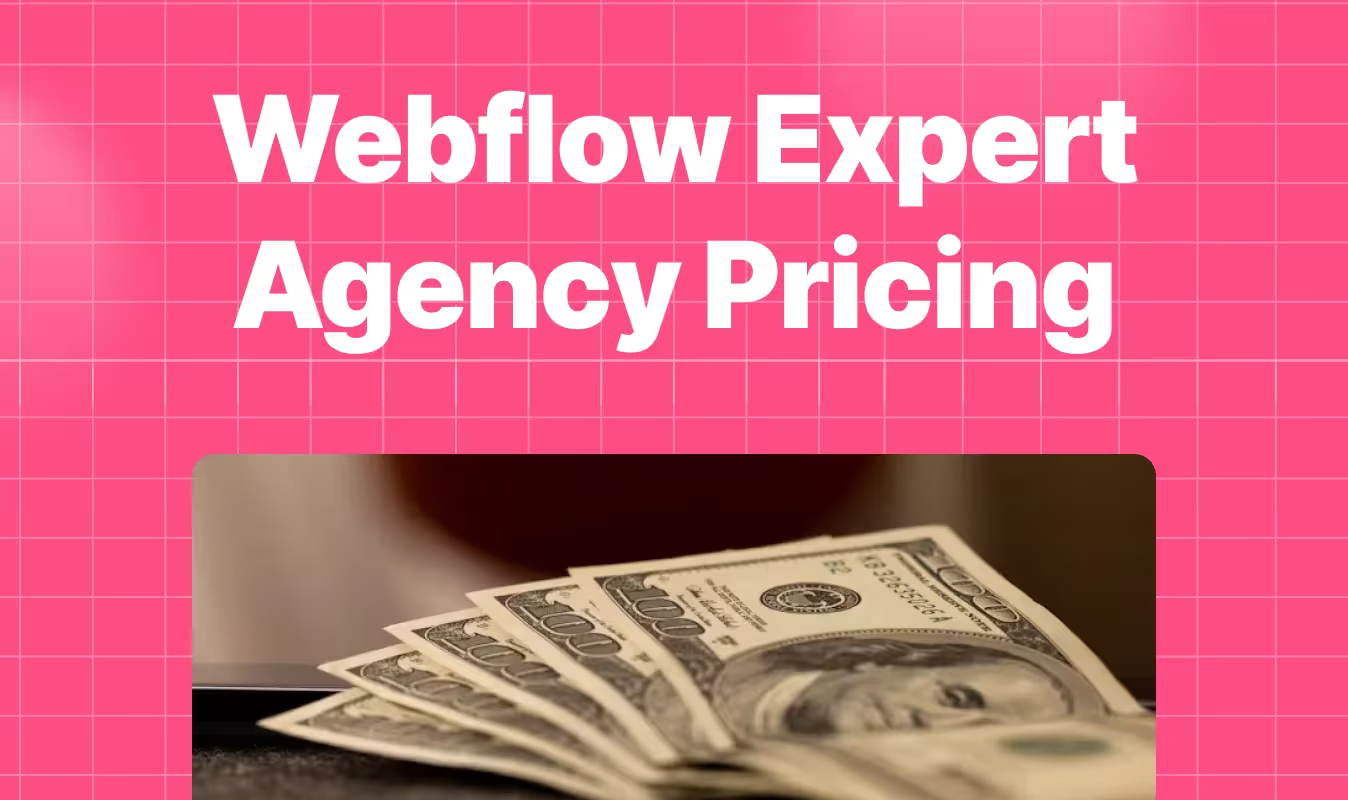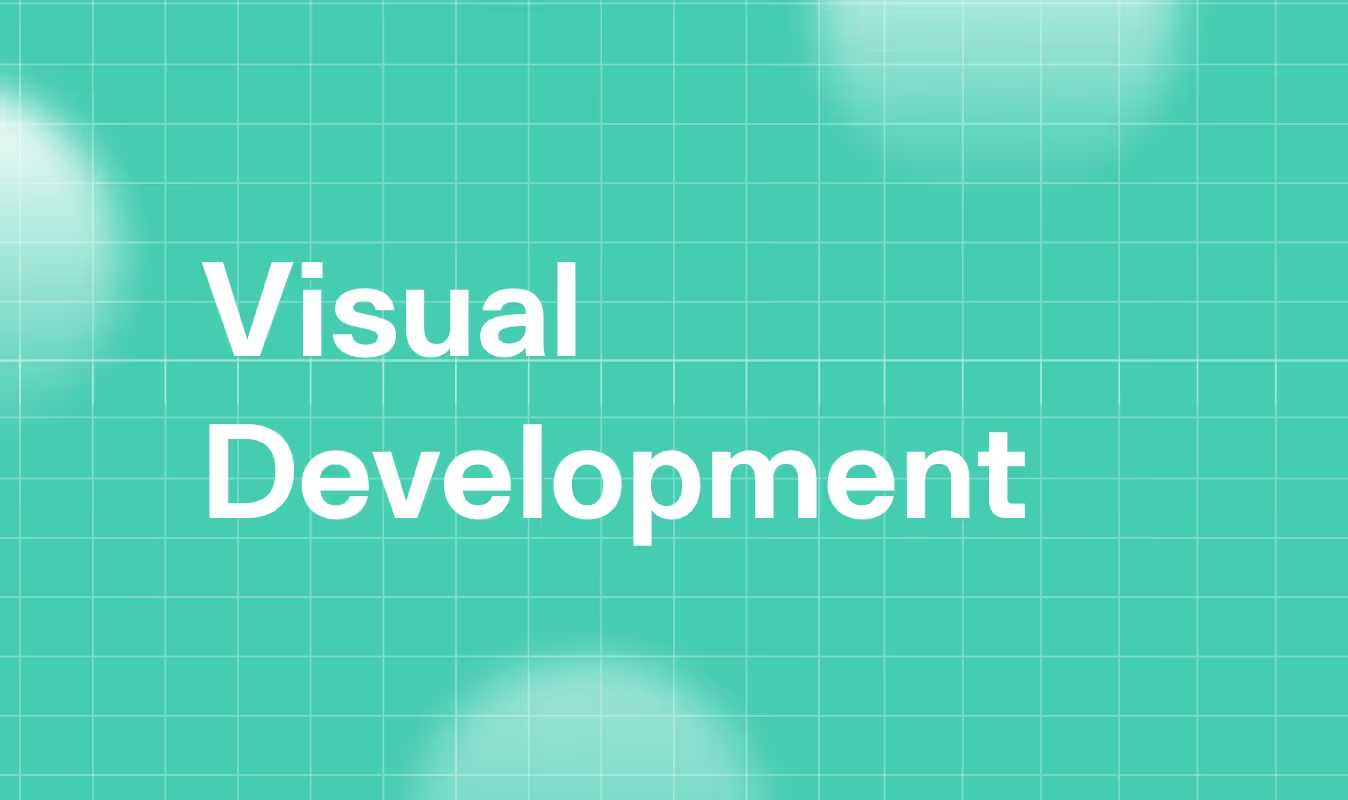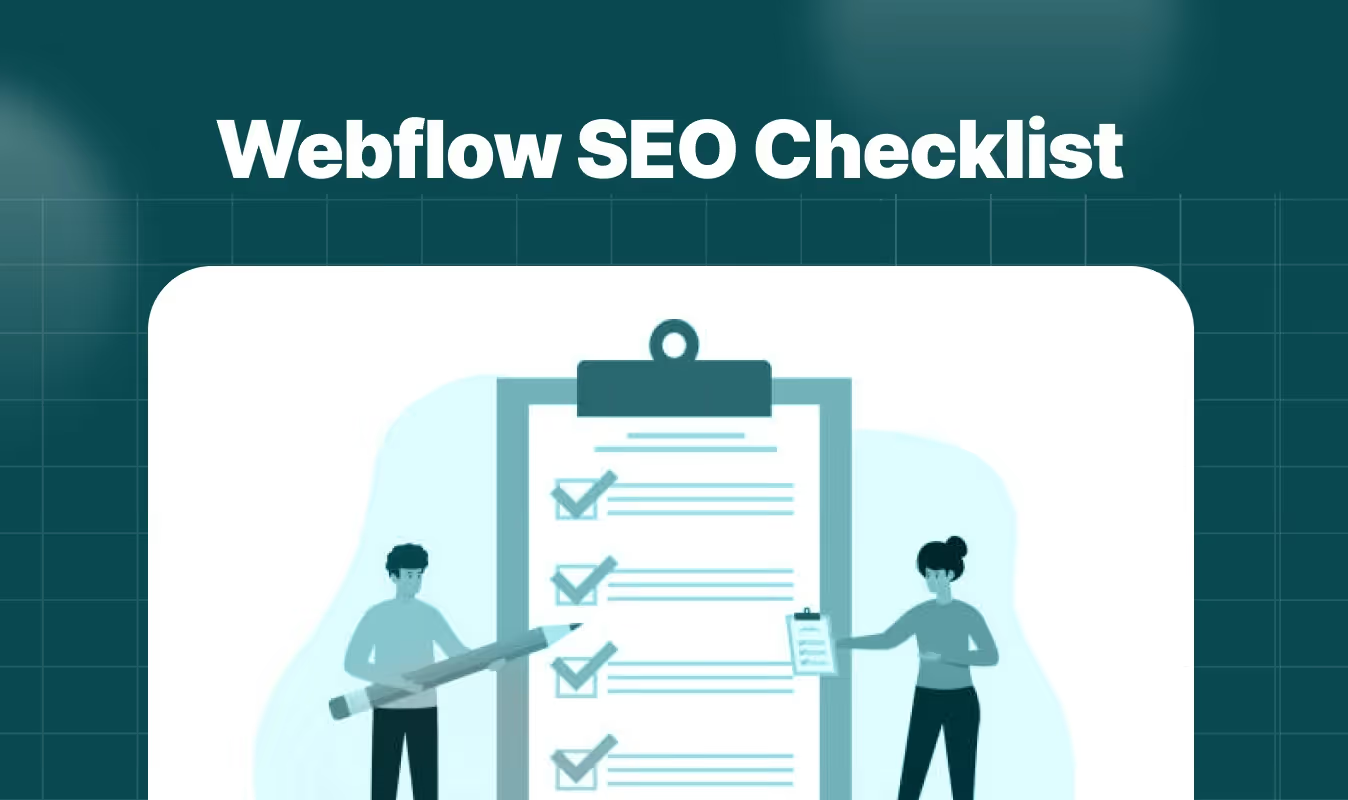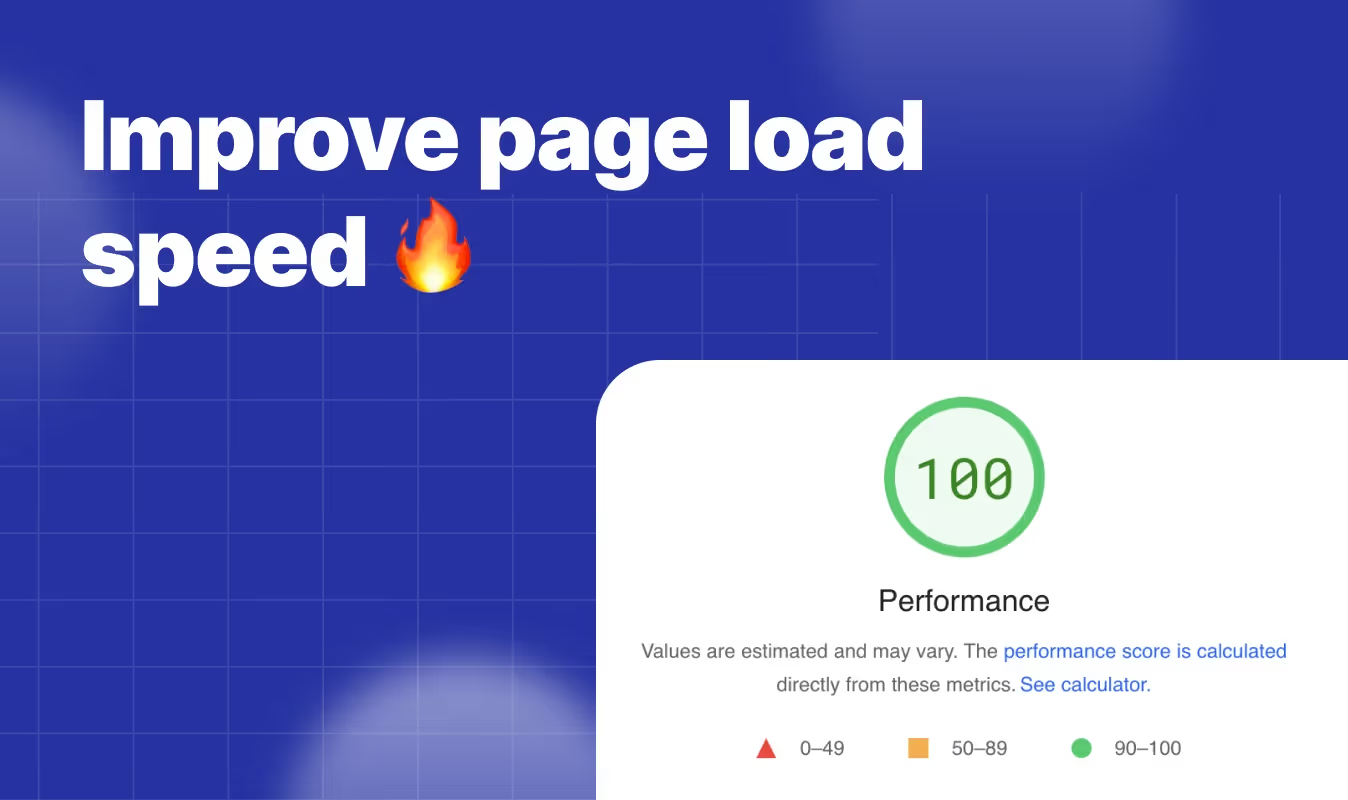Webflow Expert Agency Pricing: What to Expect and How to Budget

Understanding Webflow expert agency pricing and budgeting is paramount for anyone looking to embark on a web design or development project.
Webflow expert agencies offer specialized skills and expertise in creating professional websites, but their pricing structures can vary significantly. This knowledge is crucial as it allows businesses and individuals to make informed decisions and plan accordingly.
First and foremost, the cost of hiring a Webflow expert agency can have a substantial impact on your project's overall budget.
Without a clear understanding of pricing models and factors influencing costs, you may risk overspending or underestimating the financial commitment required.
Additionally, understanding pricing models, such as hourly rates or project-based pricing, helps you choose the most suitable arrangement for your specific needs.
Moreover, Webflow expert agencies often tailor their services to match the complexity and scope of individual projects. Understanding how these factors affect pricing can help you align your expectations with your budget, ensuring that you get the desired results without breaking the bank.
Furthermore, transparency in pricing and budgeting allows for effective comparison between different agencies.
By knowing what to expect and what services are included, you can make a well-informed choice when selecting an agency that best fits your project requirements and financial constraints.
Why you Should Hire a Webflow Expert Agency?

Hiring a Webflow expert agency for your web design and development projects offers a multitude of benefits that can significantly impact the success and efficiency of your online endeavors.
Expertise and Specialization: Webflow expert agencies are dedicated professionals who specialize in utilizing the Webflow platform. Their in-depth knowledge and experience mean that they can deliver high-quality, customized solutions that meet your specific needs.
Professional Design: These agencies have a keen eye for design, ensuring that your website not only functions flawlessly but also looks visually appealing. Aesthetically pleasing websites can engage visitors and leave a lasting impression.
Efficiency and Speed: Webflow experts can streamline the development process, often resulting in faster project completion. Their familiarity with the platform allows for efficient workflows, reducing project timelines and costs.
Customization: Webflow allows for extensive customization, and expert agencies can harness its full potential to create a website tailored to your brand and goals. This level of customization is challenging to achieve with generic website builders.
SEO Optimization: SEO is essential for online visibility, and Webflow agencies understand how to optimize websites for search engines, improving your site's chances of ranking well in search results.
Scalability: As your business grows, your website may need to evolve. Webflow experts can scale and expand your site to accommodate new features, products, or services seamlessly.
Cost-Effective: While hiring experts might seem costly upfront, it can save money in the long run. Their efficiency and ability to avoid common pitfalls can prevent costly mistakes.
Factors Influencing Webflow Expert Agency Pricing
The pricing of Webflow expert agency services can vary widely due to several key factors that influence the cost of web design and development projects.
Understanding these factors is essential for anyone considering hiring such an agency. Here are some of the crucial elements that can affect Webflow expert agency pricing:
1. Project Complexity: The complexity of your web project is a significant determinant of pricing. Websites with intricate designs, advanced functionalities, and unique features require more time and expertise, leading to higher costs.
2. Scope of Work: The extent of services required plays a pivotal role. Projects encompassing everything from design, development, content creation, SEO, and ongoing maintenance will naturally command a higher price tag.
3. Customization Level: Websites that demand a high degree of customization, tailored to your brand and specific needs, typically incur higher costs compared to using pre-designed templates.
4. Number of Pages and Features: The size and scale of your website, including the number of pages, interactive elements, e-commerce capabilities, and integrations with third-party tools or platforms, can significantly impact pricing.
5. Timeline: Urgent projects or those with tight deadlines may incur rush fees or require additional resources, potentially increasing the overall cost.
6. Agency Reputation and Expertise: Established agencies with a strong reputation and a portfolio of successful projects often charge premium rates for their services.
7. Geographic Location: The location of the Webflow expert agency can also influence pricing. Agencies in regions with a higher cost of living may charge more than those in lower-cost areas.
8. Client Involvement: Your level of involvement in the project can affect pricing. Agencies may charge differently based on whether you provide content, feedback, or other project-related contributions.
9. Additional Services: Services such as ongoing maintenance, updates, and SEO optimization may be offered as add-ons, impacting the final cost.
10. Contract Type: Different pricing models, such as hourly rates, fixed-price contracts, or retainer agreements, can have varying cost structures.
Pricing Models

Webflow expert agencies employ various pricing models to accommodate the diverse needs of clients and projects.
Each pricing model has its advantages and considerations, and understanding them is crucial when engaging with a Webflow agency. Here, we delve into three typical pricing models:
1. Hourly Rates
Hourly rates are a straightforward and widely used pricing model in the web design and development industry.
Clients are charged for the number of hours spent by the agency's team working on their project. This model offers flexibility, particularly for projects with evolving requirements or those where the scope isn't fully defined at the outset.
Pros:
- Transparency: Clients can track the time spent on their project.
- Flexibility: Changes and additions can be accommodated without major adjustments to the contract.
- Good for small projects or tasks requiring ongoing maintenance.
Cons:
- Potentially unpredictable costs: Clients may end up paying more if the project takes longer than expected.
- Limited cost control: It may not be the best choice for clients with a fixed budget.
2. Project-Based Pricing:
Project-based pricing involves a fixed fee agreed upon before the project begins. The agency estimates the total cost based on the project's scope, complexity, and requirements. This model provides clarity regarding expenses from the outset, making it suitable for well-defined projects.
Pros:
- Predictable costs: Clients know the exact cost upfront, providing budgetary clarity.
- Well-suited for projects with clear objectives and specifications.
- Incentive for agencies to complete the project efficiently.
Cons:
- Less flexibility for scope changes: Major alterations can lead to additional costs.
- Agencies may overestimate or underestimate project complexity, affecting pricing accuracy.
3. Retainer Arrangements:
Retainer agreements involve an ongoing relationship between the client and the agency. Clients pay a recurring fee for a set number of hours or specific services each month. This model is ideal for clients seeking continuous support, maintenance, updates, and improvements.
Pros:
- Predictable costs: Clients have a fixed monthly expenditure for ongoing services.
- Priority access: Retainer clients often receive priority support and quicker response times.
- Long-term partnership: Agencies and clients build a lasting relationship, enhancing collaboration.
Cons:
- May not suit one-time projects or clients with sporadic needs.
- Some services may be unused, making it less cost-effective for sporadic needs.
Also Read: Power of an Enterprise Webflow Agency in Web Development
Cost Breakdown

Working with a Webflow expert agency involves various costs, each contributing to the overall budget of your web design and development project. Here's a detailed breakdown of the key expenses you can expect:
1. Design Costs:
Design is a fundamental element of web development. It encompasses aspects like the website's layout, color scheme, typography, and user interface (UI) elements.
Design costs often depend on the complexity of your project and the level of customization required. Highly customized designs tend to be more expensive.
2. Development Costs:
Development involves turning the design concept into a functional website. This includes coding, creating interactive features, and ensuring the site works smoothly across different devices and browsers.
The complexity and size of your website will significantly impact development costs. E-commerce sites, for example, may involve more intricate development work.
3. Content Creation:
High-quality content, including text, images, videos, and other media, is crucial for engaging website visitors. Agencies may offer content creation services, which can add to your expenses.
4. SEO optimization:
Search engine optimization (SEO) is essential for improving your website's visibility in search engine results. Webflow expert agencies may offer SEO services as part of the package, contributing to costs.
5. Maintenance and Updates:
Post-launch, your website requires ongoing maintenance, updates, and security monitoring. Some agencies offer maintenance packages or hourly rates for these services.
6. Hosting and Domain Fees:
You'll need a hosting plan to make your website accessible online, and domain registration fees to secure your website's unique web address (URL). These costs vary depending on your chosen hosting provider and domain registrar.
7. Additional Services:
Depending on your project's requirements, you may incur additional costs for services such as e-commerce integration, third-party software licensing, payment gateway setup, and more.
8. Project Management and Communication:
Effective project management and communication are essential for a successful project. Some agencies include these costs in their pricing, ensuring smooth coordination between clients and the agency.
Also Read: Discover Top 12 B2B Web Flow Agencies for Your Business
Sample Price Ranges
Understanding the approximate price ranges for different types of Webflow projects is essential for anyone considering hiring a Webflow expert agency.
While exact costs, you can vary widely based on project complexity, agency rates, and geographic location, here are some sample price ranges to provide a general idea:
1. Basic Landing Page
A simple landing page with minimal content, basic design, and a contact form can cost between $500 to $1,500. These projects are ideal for small businesses or individuals looking to establish an online presence quickly.
2. Business Website
For a more comprehensive business website with multiple pages, custom design elements, and basic functionality like a blog or portfolio, you can expect to pay between $2,000 to $5,000.
This price range caters to small to medium-sized businesses looking for a professional online presence.
3. E-commerce Website
Building an e-commerce website with features like product listings, a shopping cart, payment gateway integration, and product search functionality can range from $5,000 to $15,000 or more. The complexity of the e-commerce platform and the number of products can influence the cost.
4. Custom Web Application
Developing a custom web application with intricate functionalities, databases, user accounts, and complex interactions may start at $15,000 and go up significantly, often reaching tens of thousands of dollars or more.
These projects are suitable for businesses requiring unique, tailored solutions.
5. Large-scale Website or Enterprise Project
Enterprise-level websites or projects with extensive features, high levels of customization, and advanced integrations can range from $20,000 to $100,000 or more.
These projects often involve collaboration with specialized Webflow agencies.
6. Retainer Agreements
Ongoing support, maintenance, and updates through retainer agreements can vary widely based on the scope of services. Monthly retainer fees may range from $500 to $5,000 or more, depending on the level of support required.
Also Read: Top 6 Webflow Design Agencies of 2024
Getting Quotes and Comparing Agencies
Obtaining quotes from Webflow expert agencies and effectively comparing them is a critical step in finding the right partner for your web design and development project. Here's a guide on how to navigate this process:
Requesting Quotes
1. Prepare a Detailed Project Brief: Before reaching out to agencies, create a comprehensive project brief outlining your goals, objectives, features, and any specific design preferences. The more detailed your brief, the more accurate the quotes you'll receive.
2. Identify Potential Agencies: Research and shortlist Webflow expert agencies based on their portfolios, reviews, and reputation. Ensure they have experience in projects similar to yours.
3. Reach Out with Your Project Brief: Contact the agencies you've shortlisted and share your project brief. Request a quote and include any specific questions or requirements you have.
4. Specify Your Budget: While you may not want to reveal your entire budget upfront, providing a general budget range can help agencies tailor their proposals accordingly.
Comparing Quotes
1. Scope of Work: Carefully review the scope of work outlined in each agency's proposal. Ensure that they have addressed all your project requirements and goals.
2. Pricing Structure: Analyze the pricing structure, whether it's based on hourly rates, fixed-price contracts, or retainer agreements. Ensure it aligns with your budget and project expectations.
3. Timeline: Assess the proposed timeline for project completion. A shorter timeline might mean higher costs or an agency's ability to work efficiently.
4. Portfolio and References: Examine the agencies' portfolios and ask for references from past clients. Review their previous work to gauge their expertise and quality.
5. Communication and Collaboration: Evaluate the agency's communication style and how well they understand your vision. Effective collaboration is vital for a successful project.
6. Additional Services: Check if there are any additional services included in the proposal, such as post-launch support, maintenance, or SEO optimization.
7. Terms and Conditions: Review the terms and conditions of each agency, including payment schedules, cancellation policies, and any intellectual property rights.
8. Client Feedback: Seek online reviews and testimonials about the agencies you're considering to gain insights into their reputation and client satisfaction.
9. Interview and Clarify: If necessary, schedule interviews or meetings with agency representatives to ask questions, clarify doubts, and gauge their responsiveness.
10. Compare Value, Not Just Price: Ultimately, consider the overall value offered by each agency rather than selecting solely based on price. A slightly higher investment for a more experienced and reliable agency can yield better results in the long run.
Budgeting Tips and Strategies
Creating a well-defined budget is crucial when working with a Webflow expert agency to ensure your project stays on track financially. Here are practical tips and strategies to help you develop a budget that aligns with your project requirements and financial capabilities:
1. Define Your Goals and Scope: Begin by clearly outlining your project's objectives, features, and scope of work. Understand what you want to achieve, as this will influence your budget.
2. Research Pricing and Agencies: Research the typical costs associated with Webflow projects and gather quotes from multiple agencies to compare prices. This will give you a baseline for budgeting.
3. Set a Realistic Budget: Determine how much you can comfortably invest in your project without straining your finances. Be realistic about your budget constraints.
4. Prioritize Must-Have Features: Identify essential project elements and prioritize them over optional features. This helps allocate your budget to the most critical aspects of your website.
5. Consider Ongoing Costs: Remember that web development isn't a one-time expense. Account for ongoing costs such as hosting, domain registration, maintenance, and potential updates.
6. Factor in Contingencies: Set aside a portion of your budget for unexpected expenses or scope changes that may arise during the project.
7. Negotiate and Customize: Discuss pricing and payment options with the agency. Some agencies may offer flexible payment plans or tailor services to fit your budget.
8. Phased Approach: If your budget is limited, consider a phased approach where you prioritize core functionality and add enhancements in subsequent phases as your budget allows.
9. Leverage Existing Assets: If you have existing content or assets, such as images or text, that can be used in the project, share them with the agency to potentially reduce costs.
10. Ask for Detailed Quotes: Request detailed quotes from agencies that break down the costs by service, allowing you to understand where your money is allocated.
11. Be Open to Trade-offs: Understand that some features or design elements may need to be scaled back or simplified to meet your budget. Be open to compromises when necessary.
12. Plan for Post-launch Costs: Don't overlook the costs of ongoing maintenance, updates, and marketing efforts needed to drive traffic to your website.
13. Regularly Review and Adjust: As your project progresses, regularly review your budget to ensure you're staying within your financial limits. Adjustments may be necessary.
14. Keep Records: Maintain detailed records of all project-related expenses and payments to track your budget's progress accurately.
FlowUnbound: A Webflow Expert Agency

In our exploration of Webflow expert agency pricing and budgeting, it's essential to consider the experiences of real agencies that excel in this field.
FlowUnbound, a prominent Webflow expert agency, provides valuable insights into the operational dynamics of expert agencies within this competitive landscape.
FlowUnbound is renowned for its proficiency in Webflow design and development, having successfully executed a diverse array of projects spanning various industries.
Their portfolio underscores their expertise in crafting visually captivating and functionally impeccable websites, with a strong emphasis on user experience and responsive design.
A hallmark of FlowUnbounded's approach lies in its commitment to transparency regarding pricing and budgeting.
You can engage with FlowUnbounded consistently commend the agency for delivering precise quotes, comprehensive project breakdowns, and unwavering clarity throughout the project lifecycle.
This dedication enables you to gain a holistic understanding of project costs right from the project's inception.
One of FlowUnbounded's standout features is its adaptability in pricing models, accommodating clients with diverse requirements.
Whether it's a modest-scale project or an extensive enterprise-level website, FlowUnbounded possesses the agility to tailor its services, aligning with specific budget constraints, all while delivering exemplary outcomes.
If you’re contemplating the engagement of a Webflow expert agency, FlowUnbound's impressive track record serves as a testament to the synergy of quality, transparency, and cost-effectiveness achievable in web design and development endeavors.
Conclusion
The journey through the intricacies of Webflow expert agency pricing and budgeting underscores several key takeaways crucial for anyone considering such partnerships.
Firstly, understanding the factors influencing pricing, such as project complexity, scope, and customization, is fundamental. These elements significantly impact the cost of your web development project.
Moreover, selecting the right pricing model, whether it's hourly rates, project-based pricing, or retainer agreements, requires careful consideration. Each model has its merits, and aligning it with your project's needs is vital for a successful collaboration.
Sample price ranges offer valuable insights, showcasing what you can expect to pay for various types of Webflow projects. It's essential to strike a balance between your project's requirements and your budget constraints.
When seeking quotes from Webflow expert agencies, meticulous research and transparent communication are key. Multiple quotes and a thorough evaluation of agencies' portfolios, client feedback, and pricing structures aid in making informed decisions.
Lastly, as highlighted throughout this exploration, budgeting is paramount. Crafting a realistic budget that considers all project phases, from design to post-launch maintenance, is essential to ensure your project's success without unexpected financial strain.
related articles

The Future of Web Development: Will No-Code Platforms Dominate?

Webflow SEO Checklist for Beginners and Advanced Users


